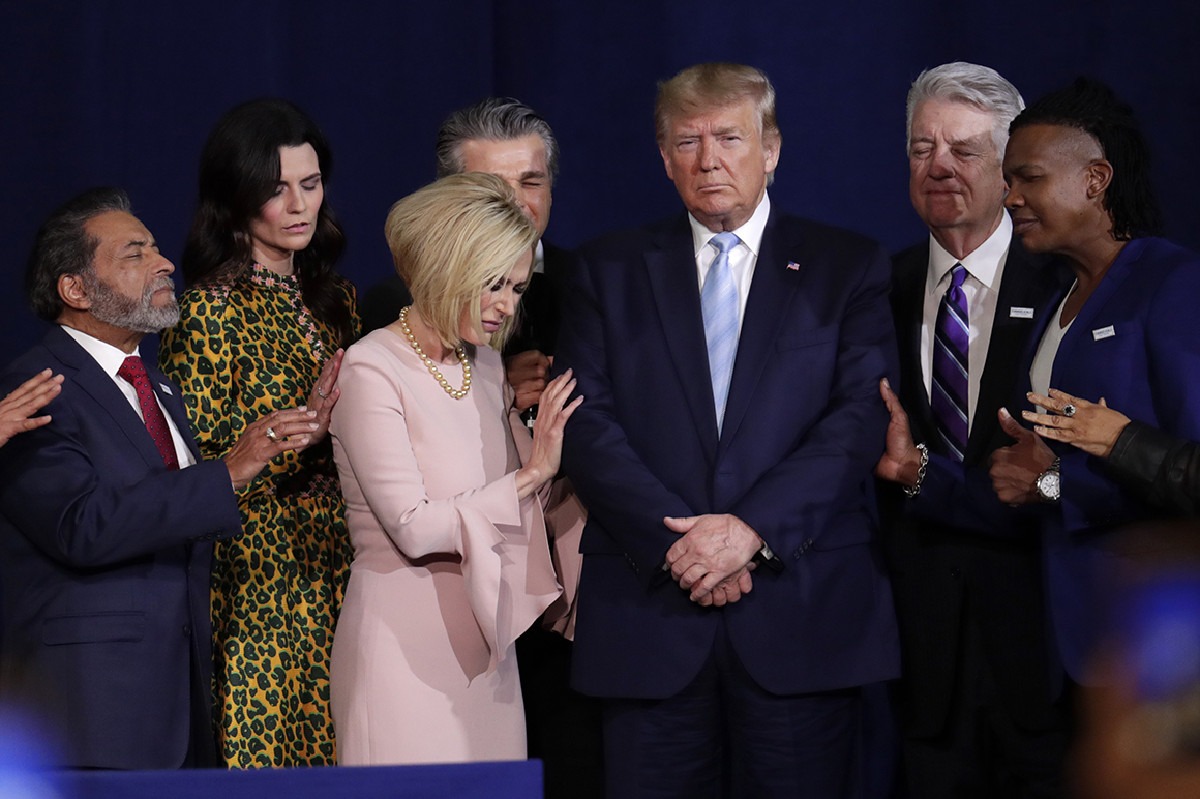Donald Trump has garnered significant and enduring support from white evangelical Christian voters, a demographic often associated with prioritizing moral values and religious principles in their political choices.
Despite Trump’s controversial personal history, including bankruptcy, allegations of adultery, bragging about sexual assault, and hush money payments to a porn star, he has maintained a remarkable level of backing from this particular voter base.
Understanding Trump’s appeal to white evangelical Christians raises questions about the factors influencing their voting decisions. Several elements contribute to this phenomenon:

Policy Alignment: Trump has consistently aligned with certain policy positions that resonate with conservative Christians, such as opposing abortion rights, supporting religious freedom, and nominating conservative judges.
Championing Conservative Values: Despite his personal behavior, Trump has presented himself as a defender of conservative values, including pro-life stances, traditional marriage, and religious freedom. This resonates with the moral concerns of evangelical voters.
Political Appointments: Trump appointed officials who align with conservative Christian values, particularly in key positions such as Supreme Court justices and Cabinet members. This signaled a commitment to advancing their policy priorities.
Religious Freedom: Trump positioned himself as a defender of religious freedom, a key concern for evangelical Christians who feel their values are under threat in a changing cultural and political landscape.
Anti-establishment Sentiment: Many evangelical voters identify with an anti-establishment sentiment, viewing Trump as an outsider who challenges the political elite. This resonates with their desire for change and disruption of the status quo.
Strategic Outreach: Trump and his campaign actively engaged with evangelical leaders, addressing their concerns and forming alliances that bolstered his support within the community.
Partisan Loyalty: Some white evangelical Christians maintain a strong allegiance to the Republican Party, viewing Trump as the party’s standard-bearer. This party loyalty can override reservations about an individual candidate’s personal behavior.
While the intersection of faith and politics is complex, Trump’s ability to maintain support among white evangelical Christian voters reflects a combination of policy alignment, perception of shared values, strategic engagement, and partisan loyalty.
This phenomenon underscores the multifaceted nature of political decisions, where religious considerations coexist with policy priorities and perceptions of leadership.

